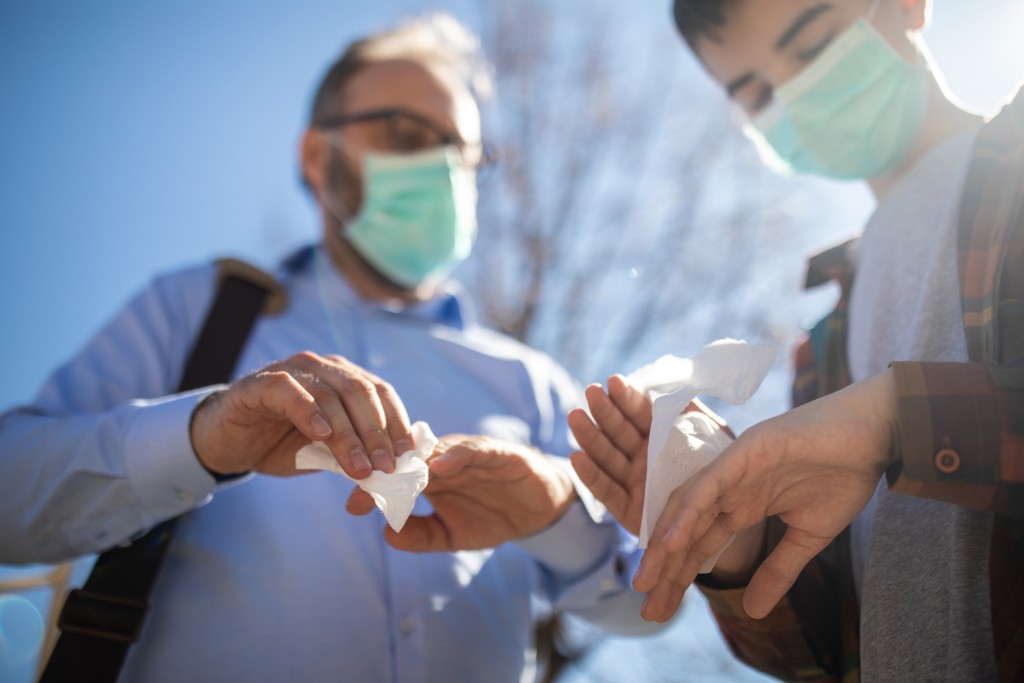Do Cleaning Wipes Protect Against COVID-19?
 Disposable single-use wipes have become so popular during the COVID-19 pandemic that stores can barely keep them on the shelves. In an effort to stay healthy and protect themselves from the COVID-19 virus, consumers have bought wipes to clean and disinfect surfaces in their homes, cars, and offices as well as their hands. However, all disposable wipes are not the same. Some are labeled antibacterial and others are marketed as disinfectants. Understanding the difference is important.
Disposable single-use wipes have become so popular during the COVID-19 pandemic that stores can barely keep them on the shelves. In an effort to stay healthy and protect themselves from the COVID-19 virus, consumers have bought wipes to clean and disinfect surfaces in their homes, cars, and offices as well as their hands. However, all disposable wipes are not the same. Some are labeled antibacterial and others are marketed as disinfectants. Understanding the difference is important.
Some wipes are only approved to kill bacteria. These antibacterial wipes are meant to clean the skin and hands. They may not kill viruses, and COVID-19 is a virus. Antibacterial soaps and wipes are regulated by the FDA, because they are classified as drugs. Although washing with soap and water is still the best way to clean hands, antibacterial wipes can be used when we are not able to wash. They are convenient to use after touching surfaces such as door knobs, light switches, shopping carts, and common surfaces that others may have touched.
Wipes that are labeled disinfectant should kill bacteria, viruses, and mold. Disinfectant wipes are believed to be effective against the virus that causes COVID-19 because they are known to kill related viruses. However, many have not been tested specifically for use against COVID-19. Product disinfectant claims are regulated by the EPA because they are considered pesticides. The chemicals used are intended to kill microorganisms. The EPA gives the product a registration number, which should be on the label.
Disinfectant wipes kill viruses, including those that cause colds and flu, on non-porous surfaces. In the home, these wipes can be used to disinfect commonly touched surfaces such as door knobs, refrigerator handles, appliance knobs, counter tops, light switches, bathroom fixtures, keyboards, cell phones, and game controllers. The disinfectant on the wipe usually has to remain on the surface for several minutes to effectively kill bacteria and viruses. The surface should look visibly wet.
It is important to read labels and follow the manufacturer’s instructions for use. Some wipes should not be used on surfaces that will have contact with foods. Many wipes can damage the finishes of leather, wood, granite, and marble. The same wipe should not be used to clean multiple surfaces, as this just tends to spread the bacteria and viruses from one to another. Do not use disinfectant wipes on toys that may end up in a child’s mouth. Never use disinfectant wipes to clean hands, as the chemicals may cause an allergic skin reaction.




